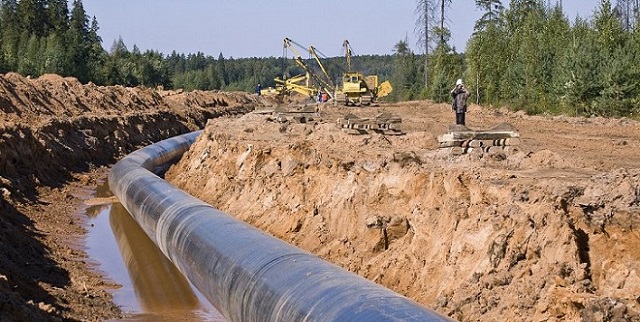
Kampala, Uganda | THE INDEPENDENT | The number of persons with interests on land located in the route of the East Africa Crude Oil Pipeline- EACOP is nearly 1,000 more than the number of Project Affected Persons-PAPs, according to information available.
According to the approved resettlement action plan, a total of 3,792 people will be compensated by the project. Of these, 3,096 people have land interests while 696 hold licensees with structures, crops, or trees growing on land owned by other persons.
However, the report indicates that 3,096 PAPs with land interests hold a total of 4,038 different landowner interests in the affected area.
“The higher number of land interests relative to the number of PAPs with land interests reflects the fact that PAPs can own more than one affected area,” the report reads in part.
This might also be tagged to the speculators that reportedly bought off several occupants of land in anticipation for return on investment at a time of project compensation.
However, Ali Ssekatawa, the director legal and corporate affairs at Petroleum Authority of Uganda notes that the increase in the number of people with interest on land in question is due to the different land interests which overlap other ownership interests.
“In these areas, we have different land tenure systems. For instance, in many areas you find that there is a person with a title and then another one with a kibanja. The kibanja owner might be the one directly affected but you cannot dismiss the interest of the land owner (the one with the title),” says Ssekatawa.
Ssekatawa further says that although dual ownership of land might not be a challenge, the compensation process is set to meet stumbling blocks from areas where some pieces of land are claimed by more than one individual or several family members.
To ensure that compensation woes don’t disrupt the project timelines, the project has put in place a grievance mechanism where disputes will be handled. Ssekatawa notes that part of these will be locally based and on the high end there will be a provision of letting the disputing sides settle out from court.
Besides, there’s also another group of people who have no recognizable legal rights or claims to the land they occupy. For instance, the report points out that 198 affected persons are expected to experience some degree of physical displacement, 36 have so far failed to adduce evidence of their claim to the land.
Twenty-nine of the said are households whose licenses are in different areas along the pipeline route, while seven households are living informally in the Taala central forest reserve. Ssekatawa says that the decision on how to compensate people in the category is still inconclusive and might need extra consultations to have a comprising solution.
EACOP is expected to take up 2,321 acres of land in 296 km to be covered in Uganda. The project is expected to affect 1,376 structures owned by non-Institutional PAPs, including 219 residential dwelling structures, 1,157 other structures such as grain stores, livestock kraals, latrines, and 33 incomplete structures.
In the same development, 34 structures owned by institutions will be affected including two classroom blocks for a nursery school in Mubende, three church houses and two mosques, and 27 other structures such as latrines, ablution blocks, fences, and bee hives.
However, the report warns that the project will not compensate any development or land subdivisions carried out on the land after the cut-off dates which are set between April and May in 2019.
“Persons occupying or migrating to the project area after the cut-off date are not eligible for compensation and resettlement assistance. Similarly, fixed assets (such as structures, crops, and trees) established after the cut-off date will not be compensated for,” says the report.
However, Dicken Kamugisha, the executive director at Africa Institute for Energy Governance notes that the PAPs have been put on hold not to use or develop their land for about three years now.
Kamugisha, says although the legality of the resettlement action plan is questioned while making the final compensation tabulations, there is a need to include losses that people would have incurred as a result of not developing their land.
*****
URN
 The Independent Uganda: You get the Truth we Pay the Price
The Independent Uganda: You get the Truth we Pay the Price


